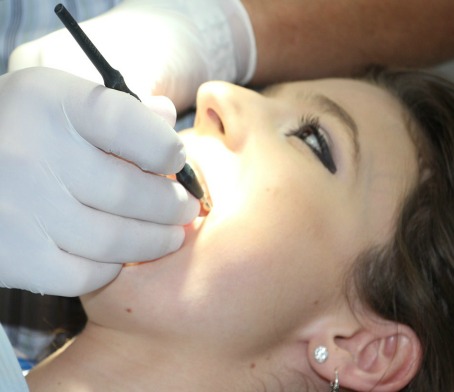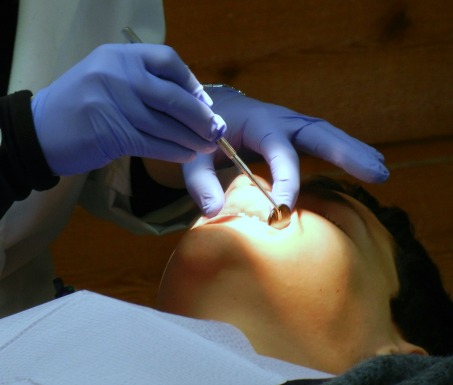What You Can Do to Speed up the Healing Process Post-implants
 The American Academy of Implant Dentistry (AAID) reports that a whopping half a million patients undergo dental implant procedures annually.
The American Academy of Implant Dentistry (AAID) reports that a whopping half a million patients undergo dental implant procedures annually.
That is a LOT of implants!
What this means is that every day, someone, somewhere, begins the process of deciding to get dental implants. Perhaps today that someone is you! The first thing to know is that the process for placing dental implants itself is well established and very safe. This means your choice of provider, their education and training as well as hands-on patient experience, will have everything to do with the success of your procedure.
The rest will be up to you. There is so much you can do to partner with your dental provider to speed up your personal healing process and ensure results you will enjoy for many years to come.
The Timeline for a Dental Implant Procedure
The traditional timeline for a dental implant procedure often begins with a tooth extraction. Following extraction, there is a waiting period of up to six months to permit the socket to heal. However, research highlights how, in some cases, it may be advisable to do an immediate placement to optimize new bone growth post-extraction.
In still other cases, if the patient has bone loss in the area where the implant is to be placed, it may be necessary to first do a bone graft to support the new implant. According to Marc Lazare, a dental implant expert in NYC, these are all examples of the kind of patient-tailored treatment protocols available to dental implant patients today. Each patient is unique so each implant procedure will be unique. This also means each patient’s recovery timeline will look different.
However, what remains the same is the importance of doing all you can to reduce healing time and support your body to heal fully after getting dental implants.
Your Diet Matters In Healing After Dental Implants
Research in the Open Dentistry Journal demonstrated the importance of dietary choice in speeding up wound healing after dental implant surgery. Certain foods were highlighted for their beneficial impact on the body’s immune system. Important components of a post-procedure diet included each of the following foods or supplements:
* Green tea or green tea extracts
* Vitamin C
* Beta-carotene
* Lycopene
* Vitamin E
* Antioxidants
* Low sugar foods
* High fiber foods
* Calcium and/or vitamin D supplementation as needed
* Always stay well hydrated
It is important to work with your dental provider to identify appropriate dietary supplements and amounts for your age, gender, and the overall state of oral health and dietary needs.
Lifestyle Choices Can Speed or Impede Dental Implant Recovery
Many dental professionals advise patients to cease the use of tobacco products for some time before and after a dental implant procedure. Research published in the Journal of the International Society of Preventive and Community Dentistry showed that tobacco use can be significantly impactful to recovery.
In cases where a patient is not willing to cease tobacco use and the provider agrees to perform the procedure, the Journal emphasizes the need to have the patient sign an Informed Consent form.
To greatly reduce your recovery time and improve overall outcomes, it is important to at least temporarily cease from tobacco use and, ideally, from alcohol use as well.
Follow Your Provider’s Post-Procedure Instructions to the Letter
For best results, it is vital to follow all of the instructions Dr. Lazare gives you for post-procedure recovery.
These instructions may include the use of pain medications as needed, wound care, sleep position, when and what to eat, restriction of activity, driving and returning to work.
You will also be advised of your follow-up post-procedure checkup date with Dr. Lazare and how to call the office before then if you have any concerns.
For best results, you should read these instructions carefully before the day of your dental implant procedure. It is a good idea to do each of the following before your procedure date:
* Line up a friend or loved one to drive you to and from the procedure.
* Stock up on soft warm or room temperature foods and liquids.
* Fill any prescriptions Dr. Lazare has given you for your post-procedure recovery.
* Be sure you have any over-the-counter wound care supplies on hand.
* Consider your sleeping arrangements and make accommodations as needed.
* Make any necessary arrangements to limit or restrict your activities while you heal.
If Dr. Lazare determines general anesthetic is the best choice for you, you may also want to ensure someone stays with you for the first 24 hours following your procedure.
Tend to Your Oral Hygiene With Great Care
The European Federation of Periodontology states that the number one reason why dental implants fail is lack of proper oral hygiene.
One common misconception many dental implant patients have is that implants are manmade and do not need regular care like brushing and flossing.
Dental implants need proper oral hygiene and care just like your regular teeth. This prevents the buildup of mucus and bacteria that can cause inflammation, bone loss and eventual loosening of the implant.
About Dr. Marc Lazare, D.D.S., M.A.G.D.
Dr. Marc Lazare is a dual Fellow in the prestigious Academy of General Dentistry and also The International Academy for Dental-Facial Esthetics.
Well known in professional and patient circles for his extensive contributions as a researcher, inventor, instructor and lecturer, Dr. Lazare has earned his nickname as “Dentist to the Stars” honestly, with a star-studded treatment roster that includes celebrity A-listers from coast to coast.
As an author and early adopter of the latest dental technology, Dr. Lazare is continually advancing the field by bringing together traditional patient-centric treatment with cutting-edge science.
